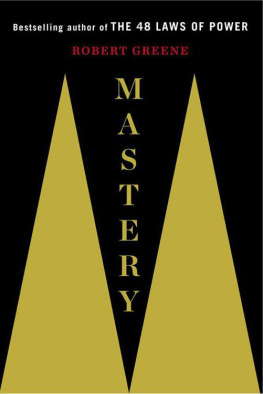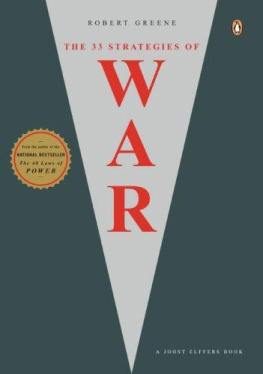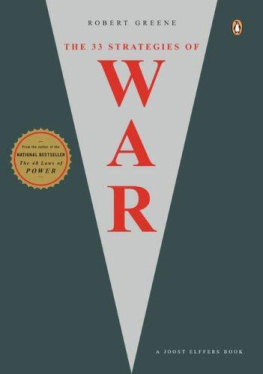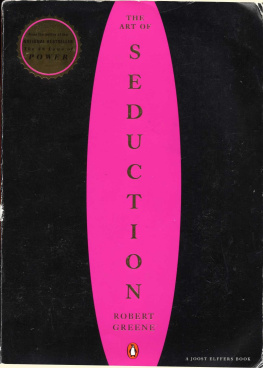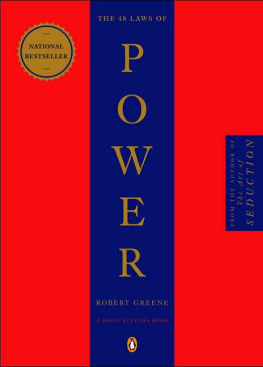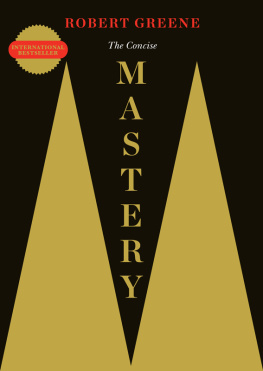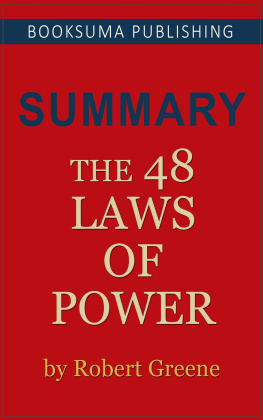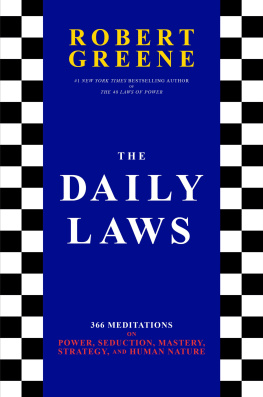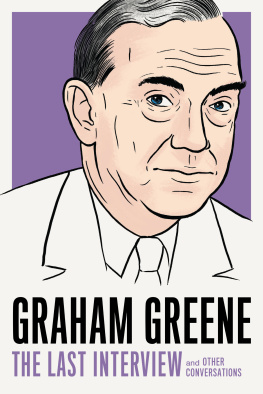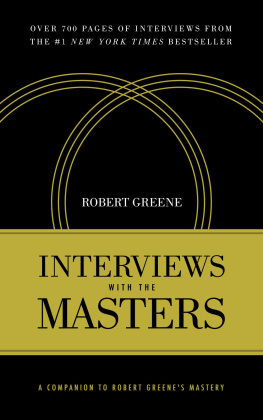MASTERY

ALSO BY ROBERT GREENE The 50th Law (with 50 Cent) The 33 Strategies of War
(A Joost Elfers Production) The Art of Seduction
(A Joost Elfers Production) The 48 Laws of Power
(A Joost Elfers Production)
ROBERT GREENE
MASTERY
VIKING
VIKING
Published by the Penguin Group
Penguin Group (USA) Inc., 375 Hudson Street, New York, New York 10014, U.S.A. Penguin Group (Canada), 90 Eglinton Avenue East, Suite 700, Toronto, Ontario, Canada M4P 2Y3 (a division of Pearson Penguin Canada Inc.) Penguin Books Ltd, 80 Strand, London WC2R 0RL, England Penguin Ireland, 25 St. Stephens Green, Dublin 2, Ireland (a division of Penguin Books Ltd) Penguin Books Australia Ltd, 250 Camberwell Road, Camberwell, Victoria 3124, Australia (a division of Pearson Australia Group Pty Ltd) Penguin Books India Pvt Ltd, 11 Community Centre, Panchsheel Park, New Delhi110 017, India Penguin Group (NZ), 67 Apollo Drive, Rosedale, Auckland 0632, New Zealand (a division of Pearson New Zealand Ltd) Penguin Books (South Africa) (Pty) Ltd, 24 Sturdee Avenue, Rosebank, Johannesburg 2196, South Africa
Penguin Books Ltd, Registered Offices:
80 Strand, London WC2R 0RL, England
First published in 2012 by Viking Penguin,
a member of Penguin Group (USA) Inc.
Copyright Robert Greene, 2012
All rights reserved
Library of Congress Cataloging-in-Publication Data
Greene, Robert.
Mastery / Robert Greene.
p. cm.
Includes bibliographical references (p.)
and index.
ISBN: 978-1-101-60102-0
1. Successful people. 2. Success.
3. Self-actualization (Psychology) I. Title.
BF637.S8G695 2012
158dc23 2012027195
No part of this book may be reproduced, scanned, or distributed in any printed or electronic form without permission. Please do not participate in or encourage piracy of copyrighted materials in violation of the authors rights. Purchase only authorized editions.
To Anna
CONTENTS
Higher intelligencedefinition of masterythe three phases of masteryintuitive intelligenceconnecting to realitythe latent power within us all Our primitive ancestorsevolution of the human brainthe ability to detach and focussocial intelligence of early hominidsmirror neuronsthinking insidemastery of timeworking with the grain of the human brainconnecting to our early roots Charles Darwin following his inclinationtraits of all great Mastersour uniqueness and primal inclinationspolitical barriers to mastery crumblingdefinition of geniusthe concept of mastery denigratedrole of desire in masterythe danger of passivitythe plasticity of the brainoverview of strategies and biographical figures in the book
You possess an inner force that seeks to guide you toward your Lifes Taskwhat you are meant to accomplish in the time that you have to live. The first move toward mastery is always inwardlearning who you really are and reconnecting with that innate force. Knowing it with clarity, you will find your way to the proper career path and everything else will fall into place. It is never too late to start this process. Leonardo da Vinci Examples of Masters guided by a sense of destinythe seed of your uniquenessreconnecting with your inclinationsdefinition of vocationchoosing a vocationfinding your nichethe quest for accomplishmentlearn who you really are Albert EinsteinMarie CurieIngmar BergmanMartha GrahamDaniel EverettJohn Coltrane A. V. S. Ramachandran B. Yoky Matsuoka Wolfgang Amadeus Mozart Freddie Roach Buckminster Fuller Temple Grandin
After your formal education, you enter the most critical phase in your lifea second, practical education known as The Apprenticeship. Before it is too late you must learn the lessons and follow the path established by the greatest Masters, past and presenta kind of Ideal Apprenticeship that transcends all fields. In the process you will master the necessary skills, discipline your mind, and transform yourself into an independent thinker, prepared for the creative challenges on the way to mastery. Charles Darwin The Ideal Apprenticeship definedthe goal of apprenticeship as self-transformation
Mute your colorsobserve the rulesobserve power relationshipsinterpretation of Charles Darwin storyknow your environment
Gaining tacit knowledgethe apprenticeship system of the Middle Agesthe cycle of accelerated returnsembracing tediumthe frontal cortex and learning taskshard-wiring knowledgethe magical number of 10,000 hours
Gradual self-assertion and experimentovercoming fears Skill acquisition in the modern worldrelevance of apprenticeshipthe hand-eye connectionyou are a builder
Benjamin FranklinAlbert EinsteinMartha GrahamFreddie Roach
Zora Neale Hurston
Daniel Everett
Cesar Rodriguez
A. Bill Bradley
B. John Keats
Henry Ford
Santiago Calatrava
Paul Graham Wolfgang Amadeus MozartAlbert Einstein
Life is short, and your time for learning and creativity is limited. Without any guidance, you can waste valuable years trying to gain knowledge and practice from various sources. Instead, you must follow the example set by Masters throughout the ages and find the proper mentor. Choose the mentor who best fits your needs and connects to your Lifes Task. Once you have internalized their knowledge, you must move on and never remain in their shadow. Your goal is always to surpass your mentors in mastery and brilliance. Michael Faraday The importance of humilitythe value of mentorsthe mentor-protg dynamiclearning as alchemyinterpretation of Michael Faraday storyAlexander the Greatthe value of personal interactionfinding and attracting a mentorfamous figures or books as mentorsthe mentor as father figurewhen to cut the Master
Frank Lloyd WrightCarl JungV. S. RamachandranYoky Matsuoka
Hakuin Zenji
Glenn Gould
Freddie Roach Thomas Edison
Often the greatest obstacle to our pursuit of mastery comes from the emotional drain we experience in dealing with the resistance and manipulations of the people around us. We misread their intentions and react in ways that cause confusion or conflict. Social intelligence is the ability to see people in the most realistic light possible. Navigating smoothly through the social environment, we have more time and energy to focus on learning and acquiring skills. Success attained without this intelligence is not true mastery, and will not last. Benjamin Franklin Humans as the preeminent social animalthe Nave Perspective holding us backinterpretation of Benjamin Franklin storyadjusting your attitude
Nonverbal communicationpaying attention to cueslooking for common emotional experiencesreading people intuitivelylooking for patternsthe danger of first impressions
Envy
Conformism
Rigidity
Self-obsessiveness
Laziness
Flightiness
Passive Aggression Social intelligence and creativity
A. Ignaz Semmelweis
B. William Harvey
Teresita Fernndez
Temple Grandin
Johann Wolfgang von GoetheJosef von SternbergDaniel Everett Paul Graham
As you accumulate more skills and internalize the rules that govern your field, your mind will want to become more active, seeking to use this knowledge in ways that are more suited to your inclinations. Instead of feeling complacent about what you know, you must expand your knowledge to related fields, giving your mind fuel to make new associations between different ideas. In the end, you will turn against the very rules you have internalized, shaping and reforming them to suit your spirit. Such originality will bring you to the heights of power. Wolfgang Amadeus Mozart The Original Mindthe Conventional Mindthe Dimensional Mindinterpretation of Mozart storythe three essential steps Altering your concept of creativitysearching for the Great White WhaleThomas Edison, Rembrandt, Marcel Proust, and the ultimate creative challengesThe Primary Law of the Creative Dynamicfinding something to rebel againstremaining realisticletting go of security Keats on the creative processdefinition of Negative CapabilityMozart and BachEinstein and Negative CapabilityShakespeare as idealFaraday on humilityNegative Capability as a tool to open the mind The brain as a dual processing systemdefinition of serendipityWilliam James and mental momentummaintaining openness of spiritLouis Pasteur and serendipityThomas Edison, serendipity, and the recording of soundthe fluid mindserendipity strategies of Anthony Burgess and Max Ernstcultivating serendipityanalogical thinking and Galileo Charles Darwin and the Currentdefinition of the Currentour primitive ancestors and the Currentshort-circuiting the CurrentBuckminster Fuller and artifactsthe importance of creating objectsfeedback loop Typical patterns of thinking to alter Avoiding shorthandfocusing on the structuregetting a feel for the wholethe importance of relationships in science Shifting from the macro to the microCharles Darwin and the micro-study of barnaclesLeonardo da Vincis attention to micro-detail in paintingletting details guide you Overdependence on paradigmsthe value of anomaliesMarie Curie and the anomaly of radioactivitythe founders of Google and anomaliesanomalies fueling evolution Sherlock Holmes and negative cuesGowland Hopkins, negative cues, and scurvymeeting unfulfilled needsHenry Ford, negative cues, and the assembly linereversing your emotional perspectivesetbacks as opportunities The intelligence of our primitive ancestorsthe human brain as a multiuse instrumentgrammar as a limitationthinking beyond languageexamples of famous people who thought in imagesthe limitations of memoryusing diagrams and modelsSchiller, Einstein, Samuel Johnson, and synesthesia
Next page
